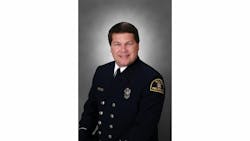Attorney: 'Cultural Indifference' Led to Dallas Firefighter's Death
Attorney Barry Hasten, reacting to the release last week of a 703-page draft report on Wilson’s death, said the document shows that Dallas Fire-Rescue suffers from a lack of accountability. He also believes fire officials botched their response to the investigation.
Hasten said Chief Louie Bright III — who has said he does “not believe discipline is merited” for anyone for their actions during the deadly six-alarm blaze — hasn’t shown the leadership needed to fix a “cultural indifference to policies, rules, tactics and manual of procedures” cited in the draft report.
“Certainly, Chief Bright’s determination that no discipline was warranted is evidence of this lack of accountability, and it serves to nurture this ‘cultural indifference’ within DFR,” Hasten said Wednesday. “It’s clear to me now that this cultural indifference led to Stan’s death.”
Dallas Fire-Rescue officials have vowed to fix those problems and move on from Wilson’s death on May 20, 2013, inside a far northeast Dallas condo building fire.
Hasten said that if the department “is unwilling to change its whole culture, it may be that a change will be forced upon it through litigation.”
Jenny Wilson hired Hasten during the summer to help her get the report on her husband’s death. She did so because she was frustrated at the slow progress of the investigation.
Fire department leaders finally released an “official” 111-page line-of-duty death report in September — 16 months after Wilson’s death. But the larger draft version of that report, obtained Wednesday through a public information request, is much more detailed and critical of the actions of fire supervisors at the scene of the fire.
Retired Dallas Fire Chief Dodd Miller has said he can’t understand why it took fire officials more than a year to release their findings.
“I’ve been all over myself trying to figure out what in the world was taking that investigation so long,” he said.
City attorneys frequently sought to keep all investigative documents private on the grounds that their release would interfere with what they said was a criminal investigation. No charges have been filed.
Hasten said he wants to know who is “responsible for gutting” the draft report.
Assistant City Manager Eric Campbell, who oversees public safety, did not respond to a request for comment.
Lt. Joel Lavender, Dallas Fire-Rescue spokesman, said the final report cut redundancy and opinions from the longer draft version. In addition, Lavender said Assistant Chief Daniel Salazar was added to the investigative team to help create the final report.
Confusion at scene
The draft report regularly notes confusion among firefighters at the fire scene and errors by the commander at the scene, Deputy Chief Bobby Ross. The investigative team also appeared puzzled by Ross’ logic for ordering firefighters anywhere near a partially collapsed building.
Several firefighters said Ross ordered them back into the building long after it was safe to do so. Wilson was crushed to death when the building collapsed. Ross told investigators that he simply asked them to break patio windows to rouse anyone who might be inside. But that tactic is never used and doesn’t make sense, investigators wrote in the draft copy.
The investigators said Ross was the only person at the scene who thought people were still inside the building.
Jenny Wilson said she hasn’t read the 703-page draft report but is pleased the city finally released it. But she still expects some fallout.
“At some point, I want to say it’s over,” she said. “And we’re not there yet.”
Bright has declined interview requests to discuss the matter.
He did not discipline Ross and said “no one person bears all responsibility” for Wilson’s death. But a week after the official report’s release in September, Bright reassigned Ross out of fire command to a staff position.
Bright said “many firefighters at the scene, including those with decision-making authority, should have handled some matters differently that morning.”
The chief pledged to work with firefighter groups to fix those problems. A committee of association leaders and fire officials is expected to submit recommendations for improving the department to Bright by the year’s end.
‘Hard on any chief’
Miller, the former chief, said Bright is in a difficult position. Disciplining a commander for decisions at the scene of a fire is virtually unheard of in the firefighting world, he said. Miller added that disciplining any employee for any reason was “hard on me to do it. Hard on any chief, I’m sure.”
But retired firefighter Jim Crump, Wilson’s longtime friend, said Bright’s job is “to police his people. And he’s refused to do that.”
“What was so catastrophic about this was the way that officers at the battalion chief level and above operated,” Crump said. “What happened was not due to any company officer. It wasn’t due to any firefighter. They were doing their jobs. They were miserably, completely, totally failed by their command structure.”
Crump, who crusaded against Ross in the months after the fire, said he has no confidence in Dallas Fire-Rescue’s leadership.
“This is pathetic,” he said, adding: “It ain’t over.”
———
©2014 The Dallas Morning News
Visit The Dallas Morning News at www.dallasnews.com
Distributed by Tribune Content Agency, LLC
